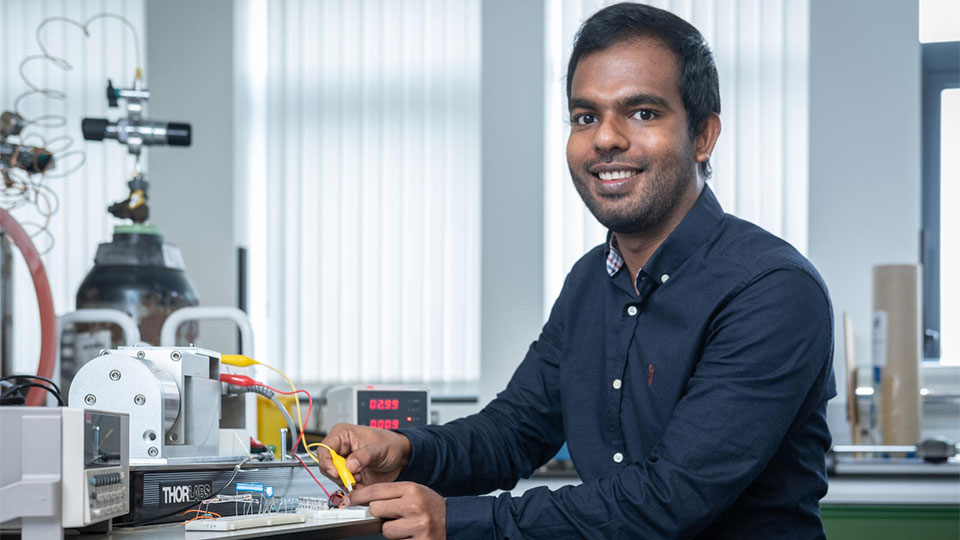Among the select few chosen to exhibit their work was Loughborough University academic Dr Ishara Dharmasena, who presented his team's pioneering research on smart textile sensors.
Dr Dharmasena, an expert in wearable electronics and smart textiles and RAEng Research Fellow at the School of Mechanical, Electrical and Manufacturing Engineering, showcased Loughborough’s work on super-smart textiles, a revolutionary technology that harnesses energy from natural body movements and converts it into electrical signals using common textile materials. The primary focus of this innovation is to transfer valuable information about movements and health to healthcare professionals through mobile devices.
The technology relies on static charging, a phenomenon we encounter daily when different textile fibres rub against each other. The arrangement of these fibres in the sensors allows them to accumulate static charges during body movements, utilising electrostatic induction to generate electrical outputs. A portion of the electricity produced powers the small electronic components necessary for the data transfer process.
Dr Dharmasena said, “With 1 in 7 people globally experiencing some form of disability, access to rehabilitation care remains a challenge, particularly in developing countries and underprivileged communities where resources are scarce.”
“Our aim is to use super-smart textiles to remotely and accurately monitor targeted body movements at a low cost. This approach would enable healthcare professionals to monitor patients' recovery processes and intervene when necessary, potentially transforming global healthcare access.”
The team's demonstrations at the event included:
- A self-powered 3D textile shoe sole, generating signals corresponding to heel movements during footsteps.
- A self-powered textile keyboard generating signals from the contact between key fibres and fingertips.
- Triboelectric fibres and yarns forming the basis of their sensors.
- 3D knitted textile sensors functioning as bionic bandages to monitor body movements.
The Innovation Late event not only showcased groundbreaking developments in smart textile technology but also highlighted its transformative potential in addressing global healthcare challenges.
Find out more about this project and the cutting-edge work Loughborough University is undertaking around Revolutionising Rehabilitation.
